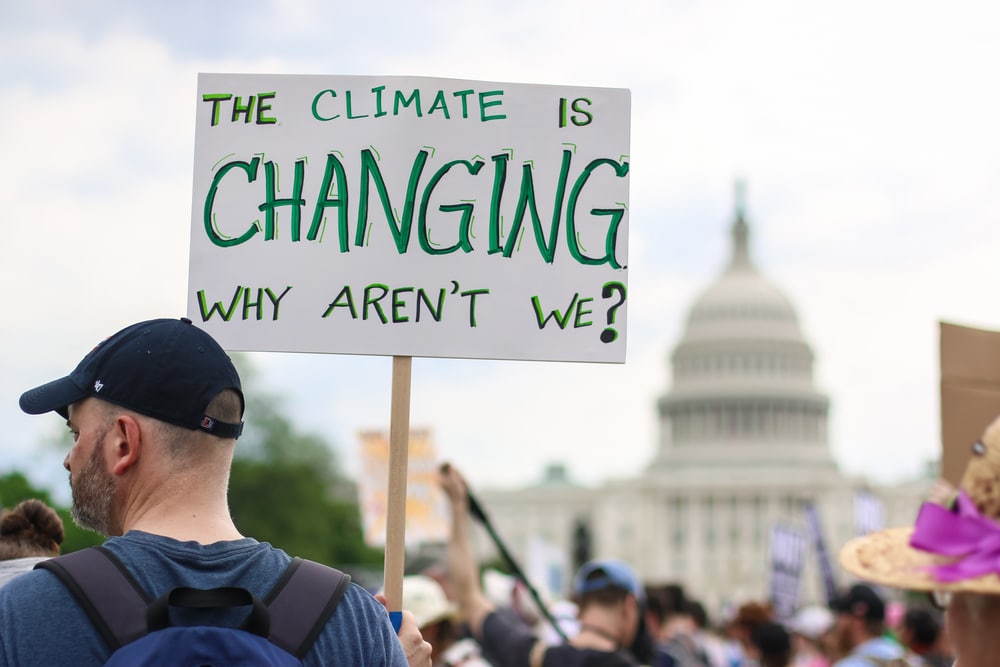Care about consumption and its impact on the planet? Many argue that consumption, not population is the real climate crisis. But the truth is, consumption and people are inextricably linked. We have to address both.
Demand isn’t created by dirty companies. Demand comes from people. Focusing only on carbon, plastic, and such plays right into the hands of global corporations like Unilever, Walmart and Amazon who depend on increasing birth rates to fuel spending for their products. Yes, bad industrial players must be held accountable. And we’re on our way to doing that. But if we’re only addressing carbon output, we’re ignoring the source of the problem: unsustainable population growth. Choosing to have a smaller family however, is the best way to mitigate our impact on the planet.
Looking only at emissions also ignores several critically important issues including water scarcity, mineral depletion, deforestation, and habitat loss. As the Center for Biological Diversity explains,“If we address one without the other, the end result will still be humans continuing to take more than our fair share from the planet.”
The Center for Biological Diversity also stated:
“A 2009 study of the relationship between population growth and global warming determined that the “carbon legacy” of just one child can produce 20 times more greenhouse gas than a person will save by driving a high-mileage car, recycling, using energy-efficient appliances and light bulbs, etc. Each child born in the United States will add about 9,441 metric tons of carbon dioxide to the carbon legacy of an average parent. The study concludes, “Clearly, the potential savings from reduced reproduction are huge compared to the savings that can be achieved by changes in lifestyle.”
One of the study’s authors, Paul Murtaugh, warned that: “In discussions about climate change, we tend to focus on the carbon emissions of an individual over his or her lifetime. Those are important issues and it’s essential that they should be considered. But an added challenge facing us is continuing population growth and increasing global consumption of resources. . . . Future growth amplifies the consequences of people’s reproductive choices today, the same way that compound interest amplifies a bank balance.”
The consumption vs. population debate.
The finger pointing is generally toward high fertility rates in developing countries and high consumption in developed countries. However, it’s not an either/or scenario. It’s an evolving situation. As nations develop, their standard of living increases along with consumption rates. We are on track for exponential population growth paired with a drastic increase in consumption. Taking an incomplete approach is a recipe for disaster.
Is consumption outpacing population growth?
It is in some cases. Consider that food demand outpaces sustainable supply. According to the 2018 Global Agricultural Productivity Report, “for the fifth straight year, global agricultural productivity growth is not accelerating fast enough.” How can we continue to feed a growing population without a global effort for sustainable population planning?
The U.N. has also warned that one million species are at risk of disappearing due to habitat loss, among other human activities, in the sixth mass extinction already underway. “A quarter of catalogued animal and plant species are already being crowded, eaten or poisoned out of existence,” its IPBES Global Assessment Report report states. Should we be concerned then about consumption or crowding? The answer is both – as confirmed by a UN Report released in May.
We have the power to determine the future for our kids.
Most of us agree that a crowded planet is not something we want. But we fail to make the connection that our decision to have a large or small family is what determines how the world will look. The Fair Start Model is one way that we can work together to ensure that all kids get what they need to thrive – including a habitable planet. Let’s save room for animals, for nature, and for our kids to enjoy the only planet we have by planning smaller families.
TAKE ACTION:
Join us in urging the U.N. Secretary-General to issue a statement recommending sustainable family planning for World Population Day. RSVP to our event, help us share the event, and send him a message here.

